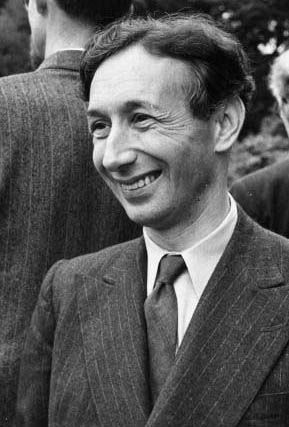 In June 1988, the philosopher, A. J. Ayer, while in hospital recovering from pneumonia, managed to choke on some smoked salmon and "died" for four minutes. Ayer had always been an atheist, so he was a little disconcerted to discover that "death" did not seem to go along with the immediate cessation of consciousness. Rather he had had an experience that he afterwards admitted had "slightly weakened" his conviction that death would mean the end of him.
In June 1988, the philosopher, A. J. Ayer, while in hospital recovering from pneumonia, managed to choke on some smoked salmon and "died" for four minutes. Ayer had always been an atheist, so he was a little disconcerted to discover that "death" did not seem to go along with the immediate cessation of consciousness. Rather he had had an experience that he afterwards admitted had "slightly weakened" his conviction that death would mean the end of him.
I was confronted by a red light, exceedingly bright, and also very painful even when I turned away from it. I was aware that this light was responsible for the government of the universe. Among its ministers were two creatures who had been put in charge of space. These ministers periodically inspected space and had recently carried out such an inspection. They had, however, failed to do their work properly, with the result that space, like a badly fitting jigsaw puzzle, was slightly out of joint.
A further consequence was that the laws of nature had ceased to function as they should. I felt that it was up to me to put things right. I also had the motive of finding a way to extinguish the painful light. I assumed that it was signaling that space was awry and that it would switch itself off when order was restored.
Unfortunately, I had no idea where the guardians of space had gone and feared that even if I found them I should not be able to communicate with them. It then occurred to me that whereas, until the present century, physicists accepted the Newtonian severance of space and time, it had become customary, since the vindication of Einstein's general theory of relativity, to treat space-time as a single whole. Accordingly, I thought that I could cure space by operating upon time.
I was vaguely aware that the ministers who had been given charge of time were in my neighborhood and I proceeded to hail them. I was again frustrated. Either they did not hear me, or they chose to ignore me, or they did not understand me. I then hit upon the expedient of walking up and down, waving my watch, in the hope of drawing their attention not to my watch itself but to the time which it measured. This elicited no response. I became more and more desperate, until the experience suddenly came to an end.
This account was published in the Sunday Telegraph on August 28, 1988. A few weeks later, in an article published in The Spectator, he retreated a little bit from the claim that his experience had slightly weakened his conviction that death meant the end.
What I should have said...is that my experiences have weakened, not my belief that there is no life after death, but my inflexible attitude towards that belief. Previously my interest in the question was purely polemical. I wished to expose the defects in the positions of those who believed that they would survive. My experiences caused me to think that it was worth examining various possibilities of survival for their own sakes. I did not intend to imply that the result of my enquiry had been to increase the low probability of any one of them, even if it were granted that they had any probability at all.
(Sources: A. J. Ayer, "What I Saw When I Was Dead"; and A. J. Ayer, "Postscript to a Postmortem")







